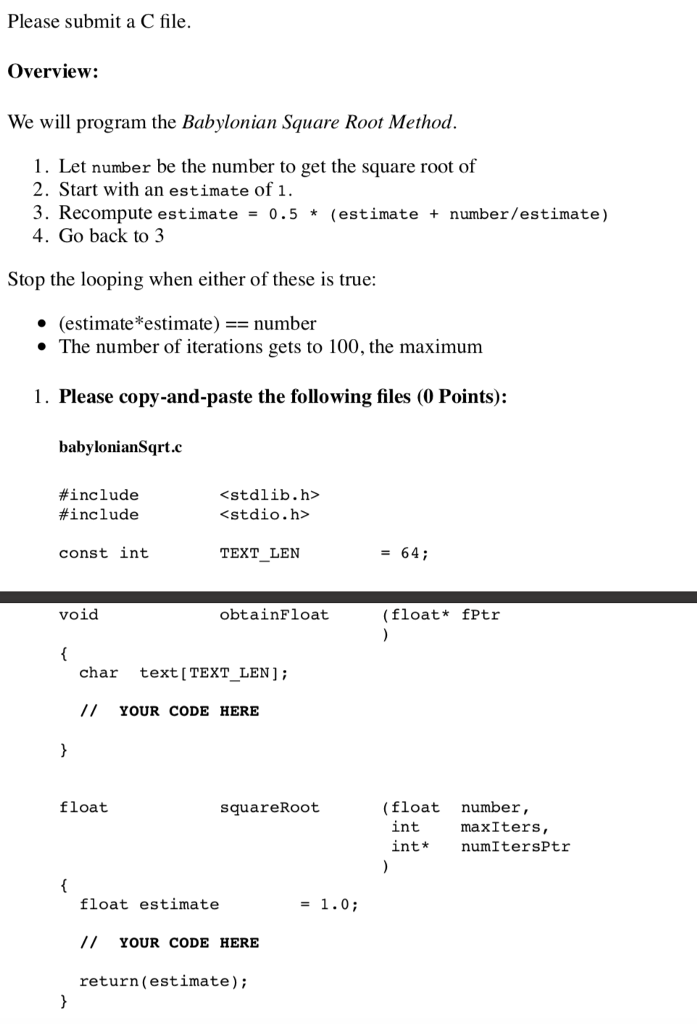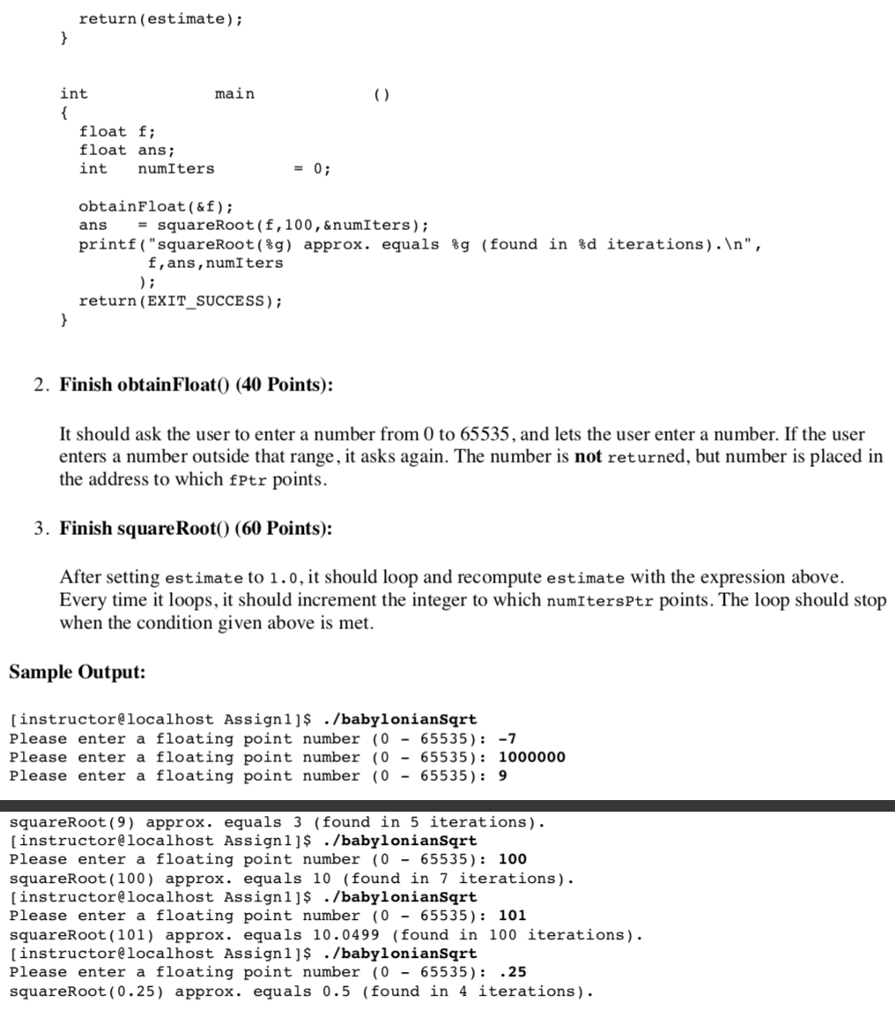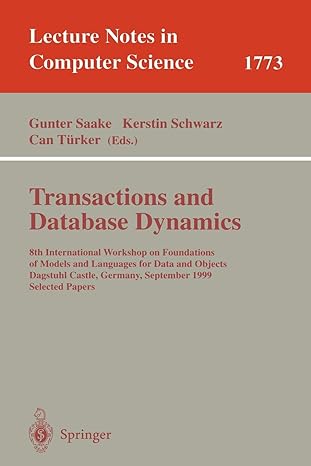Question
C PROGRAMMING: Please Help! Overview: We will program the Babylonian Square Root Method. Let number be the number to get the square root of Start
C PROGRAMMING: Please Help!
Overview:
We will program the Babylonian Square Root Method.
-
Let number be the number to get the square root of
-
Start with an estimate of 1.
-
Recompute estimate = 0.5 * (estimate + number/estimate)
-
Go back to 3
Stop the looping when either of these is true:
(estimate*estimate) == number The number of iterations gets to 100, the maximum
1. Please copy-and-paste the following files (0 Points):
babylonianSqrt.c
#include#include
const int TEXT_LEN = 64;
void obtainFloat (float* fPtr{ ) { char text[TEXT_LEN]; // YOUR CODE HERE }
float squareRoot. (float number, int maxIters, int* numItersPtr
)
{
float estimate. = 1.0;
// YOUR CODE HERE
return(estimate);
}
int main ()
{
float f;
float ans;
int numIters = 0;
obtainFloat(&f); ans = squareRoot(f,100,&numIters); printf("squareRoot(%g) approx. equals %g (found in %d iterations). ", f,ans,numIters );
return(EXIT_SUCCESS); }
2. Finish obtainFloat() (40 Points):
It should ask the user to enter a number from 0 to 65535, and lets the user enter a number. If the user enters a number outside that range, it asks again. The number is not returned, but number is placed in the address to which fPtr points.
3. Finish squareRoot() (60 Points):
After setting estimate to 1.0, it should loop and recompute estimate with the expression above. Every time it loops, it should increment the integer to which numItersPtr points. The loop should stop when the condition given above is met.
Sample Output:
[instructor@localhost Assign1]$ ./babylonianSqrt Please enter a floating point number (0 - 65535): -7
Please enter a floating point number (0 - 65535): 1000000
Please enter a floating point number (0 - 65535): 9
squareRoot(9) approx. equals 3 (found in 5 iterations).
[instructor@localhost Assign1]$ ./babylonianSqrt Please enter a floating point number (0 - 65535): 100
squareRoot(100) approx. equals 10 (found in 7 iterations).
[instructor@localhost Assign1]$ ./babylonianSqrt
Please enter a floating point number (0 - 65535): 101
squareRoot(101) approx. equals 10.0499 (found in 100 iterations).
[instructor@localhost Assign1]$ ./babylonianSqrt Please enter a floating point number (0 - 65535): .25
squareRoot(0.25) approx. equals 0.5 (found in 4 iterations).


Step by Step Solution
There are 3 Steps involved in it
Step: 1

Get Instant Access to Expert-Tailored Solutions
See step-by-step solutions with expert insights and AI powered tools for academic success
Step: 2

Step: 3

Ace Your Homework with AI
Get the answers you need in no time with our AI-driven, step-by-step assistance
Get Started


